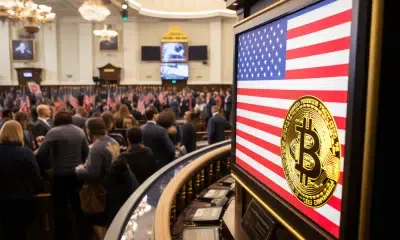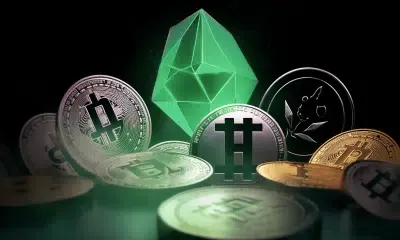What is DAO, and How is It Different From DeFi?
Discover DAOs and how they differ from DeFi. Learn about the features and advantages of DAOs, as well as their role in the future of decentralized governance.
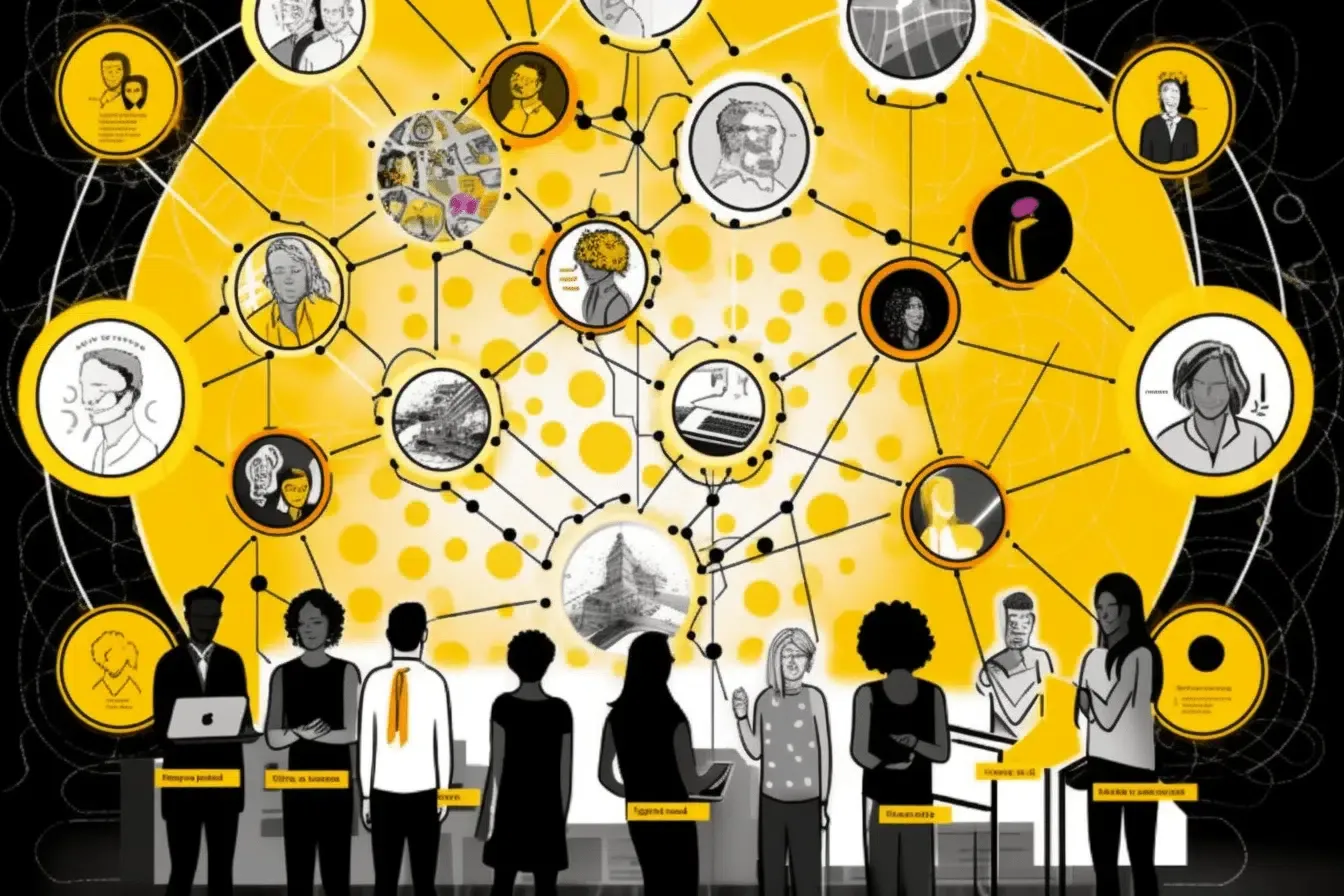
Recently, decentralized finance (DeFi) has been generating headlines in the financial industry. However, decentralized autonomous organizations (DAOs) are the new kids on the block. There are key distinctions between DeFi and DAO that belie their apparent similarities.
In this article, we’ll compare and contrast DAO and DeFi, discussing their respective functions and the benefits they provide.
So, if you’re curious about the future of decentralized finance and want to understand the nuances of these two exciting technologies, read on to discover the difference between DAO and DeFi.
What is DAO?
A DAO, or decentralized autonomous organization, is an organization that makes decisions and runs its business without any central authority whatsoever, thanks to blockchain technology. A DAO is essentially an autonomous digital entity that operates without a central authority or mediator.
Instead, the members of a decentralized autonomous organization (DAO) employ blockchain-based voting methods to govern the collective. This facilitates the principles of openness, responsibility, and decentralization, which are important to the blockchain and cryptocurrency communities.
It’s possible to utilize DAOs for everything from fundraising to governance to games. They have the potential to radically alter the way businesses are managed in the future because of their usefulness in establishing decentralized systems that function in an open and democratic manner.
What is DeFi?
The goal of the DeFi movement, sometimes known as “decentralized finance,” is to eliminate centralized financial institutions like banks from the financial system. DeFi uses blockchain technology to build decentralized financial apps that can be used by anybody with an internet connection.
Borrowing, lending, and trading are just some of the many financial services that customers may have access to using DeFi apps. This makes for a monetary system that is accessible to more people, regardless of where they live or their means of income.
Peer-to-peer transactions are one of DeFi’s main advantages since they eliminate the need for a third party in financial exchanges between users. Financial transactions may be more transparent and secure while also being more cost-effective and time-efficient.
Taken as a whole, DeFi heralds a new age in finance that is more democratic, approachable, and transparent than any before. More cutting-edge DeFi apps will likely appear as the technology develops further; they will revolutionize the way we handle and think about financial matters.
The utility of DeFi even expands to non-fungible tokens (NFTs). Learn more about it today.
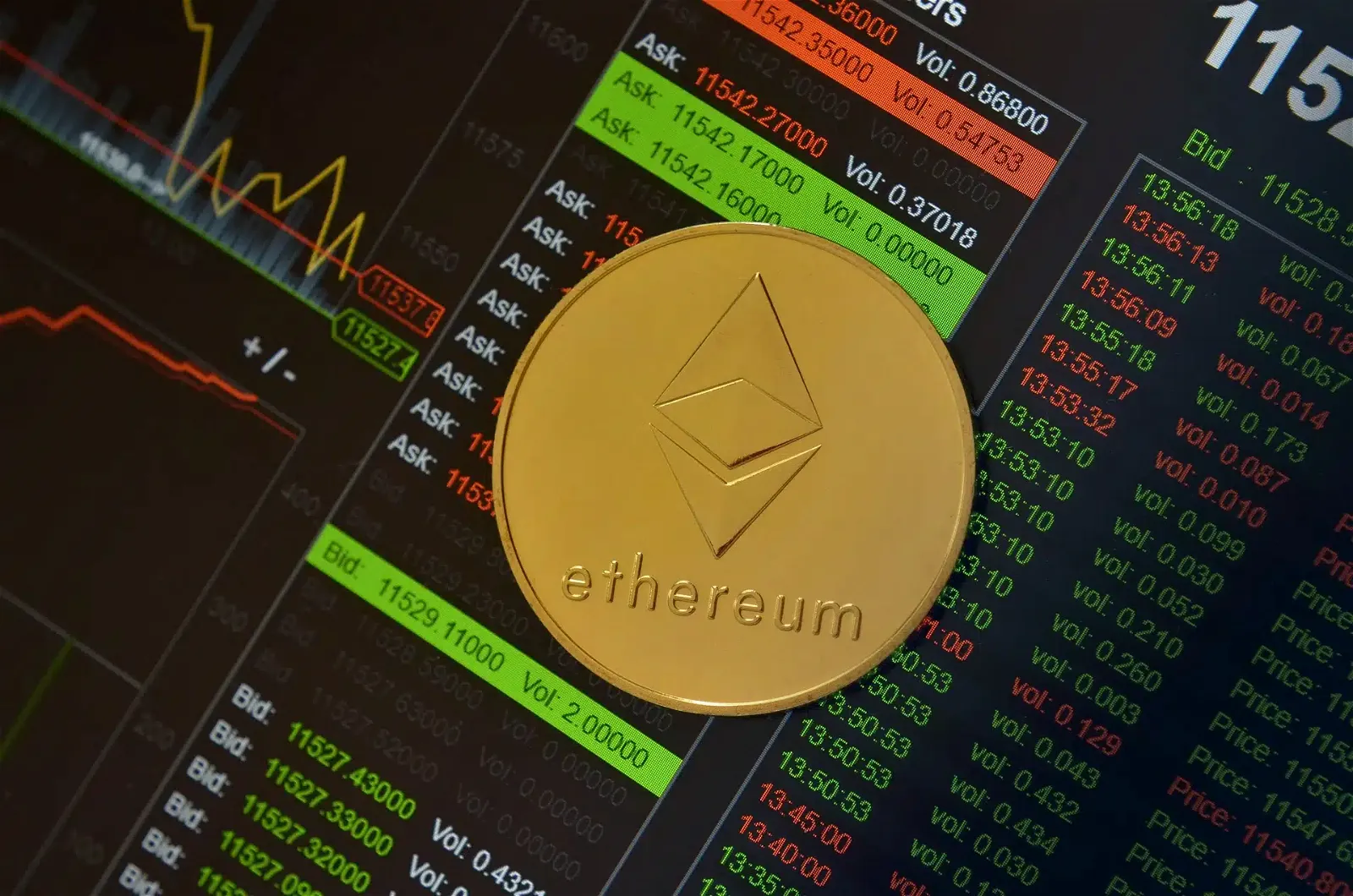
The importance of DeFi – Image via Pixabay
Why are they important?
There are several reasons why DAO and DeFi are two fascinating developments in blockchain and cryptocurrencies. The primary advantages of DAO and DeFi are as follows:
Benefits of DAO
-In a DAO, no single person or group dominates the decision-making process, leading to a more open and democratic structure.
-Blockchain technology makes all transactions and decisions by a DAO public, keeping everyone in the group informed about internal operations.
-DAOs operate autonomously, allowing them to function 24/7 with minimal human oversight. This can increase productivity and speed up decision-making.
Benefits of DeFi
-Everyone, no matter where they live or how much money they have, has equal access to DeFi since anybody with an internet connection may use it.
-Users of DeFi do not have to go through any third parties in order to do business with one another since the network is decentralized. Consequently, this has the potential to improve productivity while decreasing expenses.
-Since DeFi is still a developing discipline, there is plenty of space for new ideas and experiments. As a result, innovative financial services and products that improve upon the standard banking model may be developed.
DAO and DeFi are significant because they herald the advent of a more democratic, open, and equitable monetary order. Making financial services universally available and making decision-making more democratic and transparent than ever before are both possible with the help of blockchain technology and the decentralized platforms it enables.
Looking to venture into DeFi staking? Read our blog first.
DAO: Decentralized Autonomous Organization
As a novel approach to establishing and administering decentralized, democratic, and autonomous organizations, DAOs are generating a lot of anticipation in the blockchain and cryptocurrency communities.
In this section, we will explore the intricate world of DAOs in depth, discussing their mechanics, benefits, and applications across different industries.
If decentralized organizations pique your interest and you want to learn more about this captivating technology, keep reading to discover all you need to know about DAOs.
Characteristics of DAOs
DAOs are a sort of digital organization that can make decisions and executes governance protocols automatically via the use of smart contracts on a blockchain-based platform.
DAOs might significantly alter the way businesses are managed by introducing a more decentralized, open, and effective method of making and implementing decisions. They have several applications outside only the gaming industry, including fundraising and investing. We may anticipate the emergence of even more cutting-edge uses for DAOs as their underlying technology develops and improves.
Some defining characteristics of a DAO are as follows:
-In a decentralized autonomous organization (DAO), the authority to make decisions is dispersed among the many participants.
-DAO makes decisions and takes action with little to no outside interference.
-The public nature of a DAO’s financial transactions and decision-making ensures accountability and fairness.
-The flexible structure and procedures of a DAO can adapt to meet the needs of its participants.
-Using blockchain technology, which offers an immutable record of all transactions, a DAO is very safe.
-Since a DAO’s activities are computerized, they may be more productive, and their decisions can be made more quickly.
How do DAOs work?
Decentralized autonomous organizations (DAOs) use blockchain technology to build a trustless network without a single point of control over its operations. Here’s a step-by-step guide to how DAOs work:
–Creation: A group of individuals or organizations come together to create a DAO. They define the DAO’s purpose, structure, and rules using smart contracts, which are self-executing agreements that run on the blockchain.
–Membership: Anyone can become a member of a DAO by purchasing tokens, which represent a share of ownership and voting power in the organization. Members can propose and vote on decisions, as well as participate in other aspects of the DAO’s governance.
–Decision-making: DAOs use a consensus-based decision-making process, where decisions are made by a vote of the members. Each member’s voting power is proportional to the number of tokens they hold, which ensures that larger stakeholders have a greater say in the organization’s decisions.
–Execution: Once a decision is made, it is automatically executed through the smart contract without the need for human intervention. This ensures that decisions are executed quickly and transparently.
–Rewards: DAOs can offer rewards to members for their contributions to the organization, such as tokens or other forms of value. These rewards are distributed automatically through the smart contract based on predefined rules and criteria.
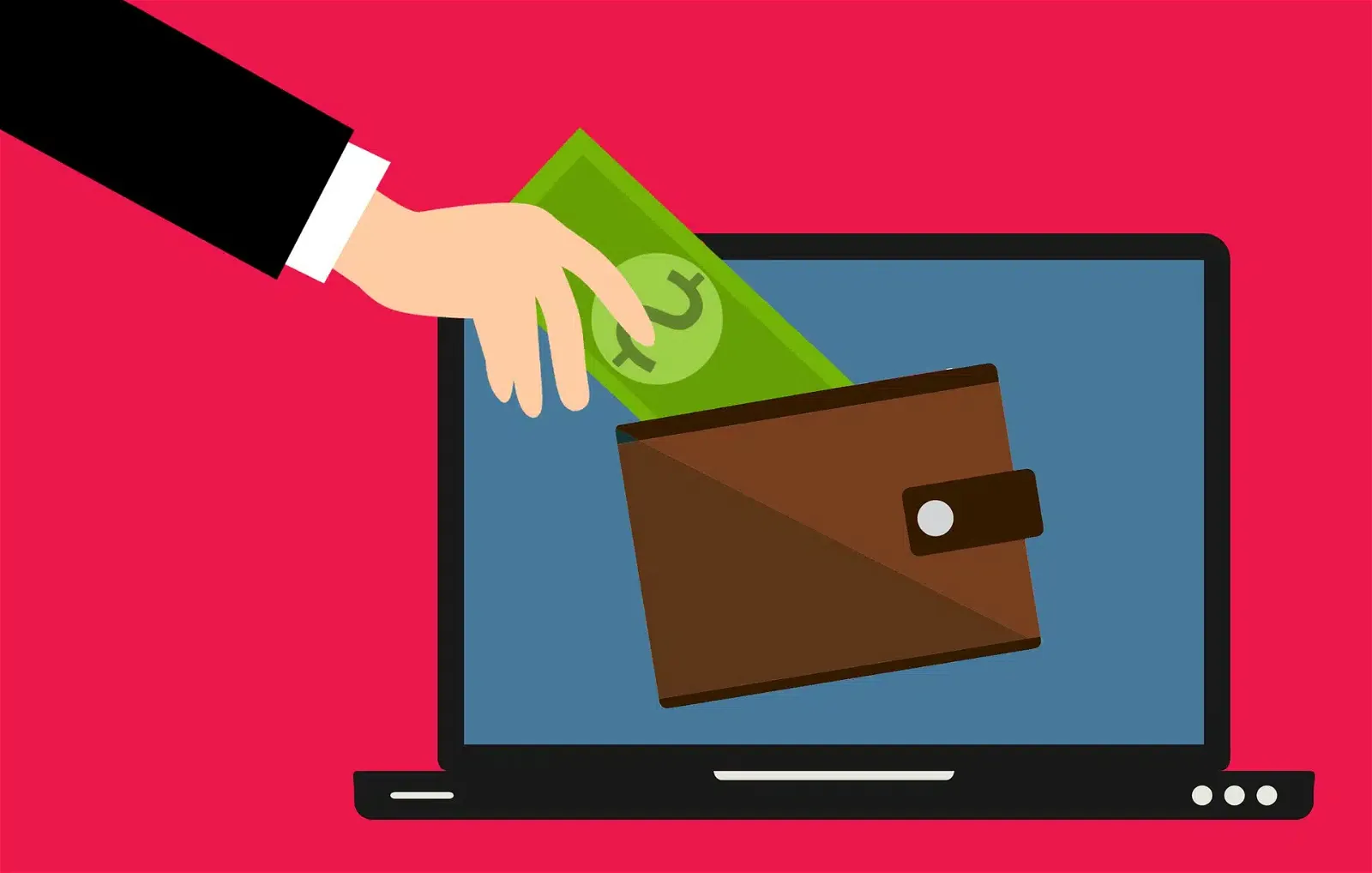
DAOs and their types – Image via Pixabay
Types of DAOs
It’s important to note that different DAOs provide different functions and have different structures. Some of the most prevalent are listed below.
–Service DAOs: These DAOs provide services to their members or the wider community, such as decentralized exchanges, prediction markets, or crowdfunding platforms.
–Investment DAOs: These DAOs pool funds from members and use them to invest in various assets, such as cryptocurrencies, stocks, or real estate.
–Social DAOs: These DAOs are focused on social causes, such as environmental protection, charitable giving, or community development.
–Reputation DAOs: These DAOs use a reputation system to govern decision-making, where members earn and lose reputation points based on their contributions to the organization.
–Hybrid DAOs: These DAOs combine elements of different types of DAOs, such as a service DAO that also offers investment opportunities to its members.
Examples of successful DAOs
In recent years, DAOs have gained popularity, and several of them have found considerable success. Here are some examples of successful DAOs:
MakerDAO
One of the first and most well-known DAOs, DAI, is making stablecoins. MakerDAO is governed in a decentralized manner, with members being able to suggest and vote on protocol updates. MakerDAO has been a forerunner in the DeFi industry, and it now boasts over 5,000 users.
MolochDAO
This DAO’s primary goal is to support Ethereum-related open-source initiatives. Members invest in the DAO, suggest initiatives for funding, and vote on those proposals. In addition to funding several significant initiatives, MolochDAO has been able to capture the attention of many influential members of the Ethereum community.
AavegotchiDAO
The goal of this DAO is to build a blockchain-based version of the popular collectible card game Aavegotchi. In this game, the DAO controls how the game evolves and how players are compensated. There is a large and dedicated group of users and programmers working on AavegotchiDAO.
dxDAO
The Omen decentralized exchange is the primary focus of this DAO. There are no central authorities or established chains of command in the dxDAO.
Members can propose and vote on changes to the exchange, and the community makes final decisions through a consensus-based approach.
GitcoinDAO
This DAO is dedicated to supporting public good-oriented open-source initiatives within the Ethereum ecosystem. DAO members may vote on which projects to finance with their contributions. GitcoinDAO has been able to get backing from well-known investors, allowing it to finance a wide range of significant initiatives.
There are many more examples of successful DAOs than simply the ones listed here. We may anticipate the emergence of even more ground-breaking DAOs in the future as the technology supporting them continues to advance and develop.
Differences between DAO and DeFi
DAO and DeFi both rely on blockchain technology, but they are not the same thing. In this section, we will delve into both the fundamental and superficial differences between DAO and DeFi. We hope that by the section’s conclusion, you will have a greater grasp of the distinctions between these two ideas.
Core differences in terms of technology, purpose, and governance
Here are some core differences based on purpose and governance:
| Aspect | DAO | DeFi |
| Purpose | Create a decentralized and autonomous organization | Create decentralized financial products and services |
| Governance | Decentralized governance model; members can propose and vote on changes to the protocol | Centralized or hybrid governance structures |
| Token Economics | Tokens are used for voting and decision-making; they may or may not have a monetary value | Tokens have a monetary value and are used to access and use DeFi products and services |
| Focus | Governance and decision-making | Financial products and services |
| Examples | MakerDAO, MolochDAO, AavegotchiDAO | Uniswap, Compound, Aave |
Here are some differences based on technology:
| Aspect | DAO | DeFi |
| Smart Contracts | Smart contracts used to govern decision-making and distribute rewards | Smart contracts used to automate financial transactions |
| Interoperability | Often self-contained | Rely on interoperability between different blockchain networks |
| Decentralization | Decentralization is a core feature | Decentralization is important, but some projects may use more centralized components |
| Blockchain Networks | Can be built on a single blockchain network | Often rely on multiple blockchain networks |
| Use Cases | Governance and decision-making | Decentralized financial products and services |
| Examples | Aragon, DAOstack, Gnosis Safe | Ethereum, Binance Smart Chain, Polygon |
Advantages and disadvantages of each approach
Advantages of DAO
-Transparency and equity may improve as a result of DAOs’ decentralized decision-making and governance.
-Since DAOs operate on a public blockchain, everyone can see and verify all transactions and decisions.
-DAOs’ community-driven decision-making can boost participant ownership and engagement.
-In a DAO, participants don’t need to trust a single organization or individual because smart contracts govern the DAO itself.
Disadvantages of DAO
-DAOs may be difficult to establish and administer, requiring specialized knowledge and resources.
-Consensus-based decision-making, which is how DAOs work, may be sluggish and inefficient.
-Loss of cash or other losses might arise from an assault on a DAO, which is susceptible to hacking and other forms of attack.
-Uncertainty and regulatory risk might arise since DAOs presently lack a legal framework, which is a problem.
Advantages of DeFi
-With DeFi’s decentralized approach to finance, more people may benefit from the goods and services available.
-DeFi is available to everyone with an internet connection, regardless of where they are physically located or whether or not they have any existing banking ties.
-DeFi eliminates the need for middlemen by using smart contracts, which automate monetary transactions.
-Some DeFi products provide attractively high yields and returns, which might entice investors.
Disadvantages of DeFi
-Because of its volatile nature, the value of cryptocurrencies may fluctuate widely.
-Due to the existing lack of clarity in the DeFi regulatory environment, regulatory risk and ambiguity exist.
-The loss of cash or other losses may occur as a consequence of technological risks, such as hacking and other kinds of technical risks that might affect DeFi systems.
-For those unfamiliar with the field, navigating DeFi may be a time-consuming and frustrating experience.
| Advantages | Disadvantages | |
|
DAOs |
Decentralization
Transparency Community-driven |
Complexity
Slow decision-making Vulnerability to attacks |
| DeFi |
Decentralized finance
Accessibility Automation Potential for high returns |
Volatility
Regulatory Uncertainty Technical risks Complexity |

DAO and DeFi use cases – Image via Pixabay
Use cases and potential future developments
DAOs and DeFi have a wide variety of possible applications. They have applications outside the realm of money, including those of the gaming and social media sectors. DAOs have the potential to streamline financial operations by enabling distributed decision-making and automating processes like lending, investing, and asset management.
They may give gamers more control over their gaming experience by allowing them to build and run their own virtual communities. DAOs may function as a decentralized infrastructure for social media content production, ownership, and delivery.
As an open and transparent alternative to conventional finance, DeFi, on the other hand, has the potential to spark a revolution. Just a few of the potential benefits of DeFi include decentralized systems for lending and borrowing, trading, and insurance. DeFi has huge promise as a way to reach those who don’t have access to traditional banking.
On top of that, DeFi has the ability to boost the effectiveness of financial services while simultaneously decreasing the number of financial middlemen. The potential applications and enhancements of DAOs and DeFi are vast and will only increase as their underlying technologies mature.
Conclusion
Both DAOs and DeFi are crucial to the operation of the decentralized web. In decentralized autonomous organizations, or DAOs, no single person or group holds control over the organization.
On the other hand, decentralized finance (abbreviated DeFi) delivers on the promise of openness, transparency, and high returns for its clients. DAOs and DeFi, each with its own benefits and drawbacks, may revolutionize many fields, from banking to video games to social networking.
Summary of key points
-Decentralized autonomous organizations (DAOs) provide distributed decision-making, transparency, and community-driven governance, while decentralized finance (DeFi) offers similar benefits to its clients in the form of easily accessible, transparent, and potentially lucrative financial services.
-While DAOs use smart contracts and blockchain technology, DeFi encompasses several other types of decentralized financial apps.
-DAOs have the potential benefits of transparency, decentralization, and community-driven decision-making, but they also face significant hazards in the areas of governance and regulation.
-Accessibility, openness, and potentially significant returns are some of DeFi’s pros, whereas market volatility and smart contract risks are two of the negatives.
-Decentralized decision-making across sectors is one use of DAOs, whereas one application of DeFi is to help the financially excluded and underbanked get access to financial services.
-Many different sectors, from banking to video games to social media, stand to benefit from the innovations that the future of DAOs and DeFi may hold.
-There is little doubt that DAOs and DeFi will play a major part in creating the future of the decentralized web, despite the fact that they are not without their hazards.
Implications for the future of blockchain and crypto
The proliferation of DAOs and DeFi is indicative of a larger trend in the blockchain and cryptocurrency space toward decentralization, democratization, and individual agency. All kinds of businesses, from banking to video games to social networking, stand to benefit from these innovations.
More people will gain a voice in government, reducing the concentration of power among a few individuals. Blockchain and smart contracts will enhance the safety and cost-efficiency of many businesses. However, challenges like regulatory uncertainty and governance issues still need addressing.
The advantages of these technologies will likely outweigh the disadvantages, and they will have a major impact on the development of the decentralized web in the future.

